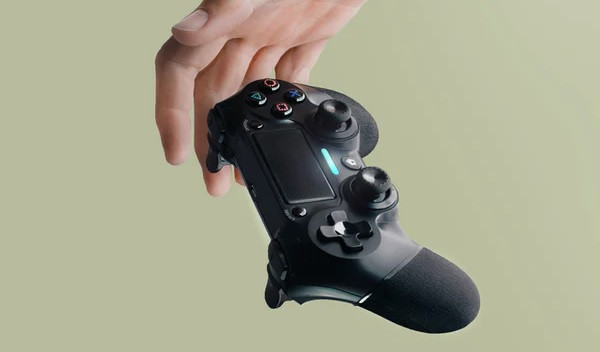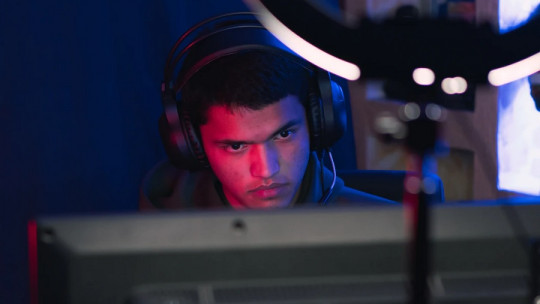Video games are part of the life history of new generations. Many people who are in their twenties and thirties have chosen this medium as a form of entertainment and, based on it, have created communities, strong ties, and memories worthy of recognition. There is no doubt that gaming has made its way into modern society as a form of entertainment in many facets, and proof of this is the thousands of people who make a living thanks to this booming industry.
As with any entertainment medium that expands in society at a rapid pace, it is normal for fears, worries and fears to arise, especially on the part of parents who expose their children to this type of recreational activities. Ignorance implies distrust and, therefore, being away from the field of video games can cause certain suspicions to appear.
Here you will find a summary of the emotional consequences of video game addiction in adolescents, and a reflection on this concept at a medical and psychological level.
What is an addiction?
We begin by laying the foundation: addiction is the dependence on substances or activities that are harmful to health or psychological balance. Defining an addictive condition is easy as far as drug consumption is concerned: for example, nicotine enters the patient’s system, the release of the neurotransmitter (GABA) occurs, dopamine is released and a feeling of euphoria appears. Addictive mechanisms also develop through changes in the norepinephrine and glutamate systems, as these cause stimulant effects.
The problem is that when neurons are overexposed to the addictive substance, dopamine secretion is limited and the patient requires more and more doses of the substance to reach the same peak of euphoria. Thus, a complex dependence mechanism develops, where drug consumption must increase increasingly in quantity and time.
Is video game addiction an addiction?
The American Psychological Association (APA) publishes, from time to time, the Diagnostic and Statistical Manual of Mental Disorders (DSM). Its fifth edition was published in 2013, and this document sets the standard for the diagnosis of disorders and their validity. According to the DSM-5, video game addiction is still not conceived as a separate clinical entity today.
There is not enough evidence to separate this possible addiction as its own condition (as is the case with gambling addiction), although the APA recognizes that it is necessary to continue investigating the possible dependence on video games to find a more accurate diagnosis.
For example, studies have shown that there are convergent physiological activities between people who develop a dependence on this entertainment medium and those with abusive relationships with some substance. For example, it has been shown that the dorsolateral prefrontal cortex, orbital frontal cortex, dentate gyrus of the hippocampus, and thalamus are similarly activated in both patients. All of these structures appear to play essential roles in the development of addiction.
Furthermore, it has been shown that Those people “addicted” to video games feel anxiety when they cannot play, an event connected to the dopaminergic circuit. , as happens with other drugs. For all these reasons and more, the World Health Organization (WHO) has included this disorder in the International Statistical Classification of Diseases and Related Health Problems (ICD-11).

The effects of video game addiction
As we have seen, today video game addiction is not considered a separate disorder from the rest, but this does not mean that it will not be in the future or that it will not be part of a broader clinical picture. According to the APA, these are the following criteria proposed to quantify gaming disorder :
All of these diagnostic criteria have been proposed, but as we have said previously, they have not yet been accepted. Even so, it is possible that, in future revisions of the DSM, video game addiction will be included as its own clinical entity, due to the similarities it presents with other disorders.
If we operate in a scenario in which video game addiction is considered clinically relevant, All of these events could have a large number of emotional consequences for adolescents who develop these problems. For example, constant worry related to the activity of playing could translate into less attention in the student environment and, therefore, a greater probability of academic failure. This, in turn, usually leads to feelings of worthlessness and/or depression.
The home isolation that in many cases involves playing video games could translate into a greater risk of social exclusion, which again, translates into various emotional imbalances: problems in self-esteem, in the sense of belonging, perception of meaning and emotional flattening. All of this could also have effects on the cognitive development of the isolated adolescent.
Furthermore, the chronic anxiety that this dependence could generate would translate into emotional fatigue, tiredness, somatization of symptoms, and even some quantifiable physiological events. Cortisol (the stress hormone par excellence) has a clear immunosuppressive role, so it is normal for people with chronic anxiety to feel greater weakness and ease of getting sick.
A final thought
Great care must be taken when reporting this type of condition and, for this reason, we have used the conditional in these last lines (could, would be, would). If the APA has not yet classified video game addiction as its own disorder, it is because there is not enough evidence of how negative it can be, so we cannot definitively state its consequences.
For all these reasons, scientists and psychologists around the world have only one option left: opt for a conservative approach and continue researching. If a person has problems with video games, they will require psychological help (just like any other patient), but the treatment should depend on each case. and the opinion of the professional until the practices and diagnosis of this possible clinical entity are standardized.









